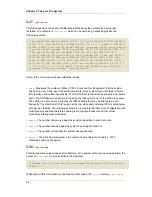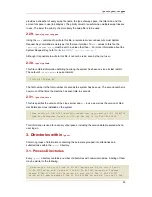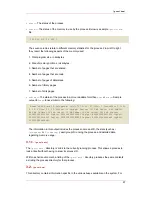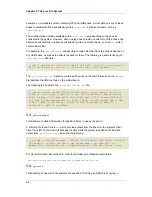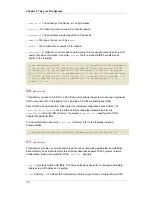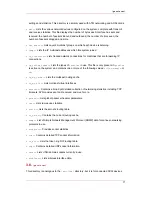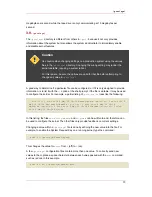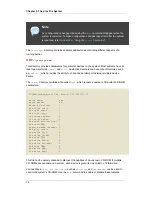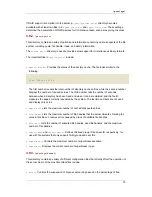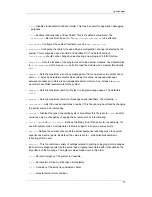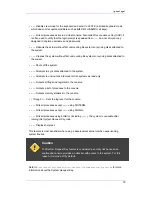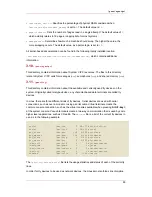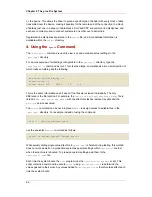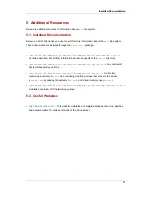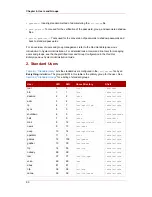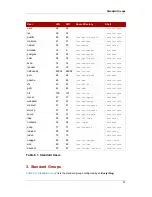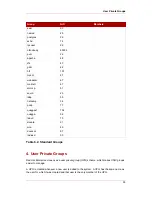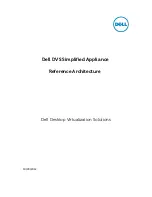
•
4
— General kernel warning condition.
•
5
— Kernel notice of a normal but significant condition.
•
6
— Kernel informational message.
•
7
— Kernel debug-level messages.
Four values are found in the
printk
file:
6
4
1
7
Each of these values defines a different rule for dealing with error messages. The first value,
called the console loglevel, defines the lowest priority of messages printed to the console.
(Note that, the lower the priority, the higher the loglevel number.) The second value sets the
default loglevel for messages without an explicit loglevel attached to them. The third value
sets the lowest possible loglevel configuration for the console loglevel. The last value sets the
default value for the console loglevel.
•
random/
directory — Lists a number of values related to generating random numbers for the
kernel.
•
rtsig-max
— Configures the maximum number of POSIX real-time signals that the system
may have queued at any one time. The default value is
1024
.
•
rtsig-nr
— Lists the current number of POSIX real-time signals queued by the kernel.
•
sem
— Configures semaphore settings within the kernel. A semaphore is a System V IPC
object that is used to control utilization of a particular process.
•
shmall
— Sets the total amount of shared memory that can be used at one time on the
system, in pages. By default, this value is
2097152
.
•
shmmax
— Sets the largest shared memory segment size allowed by the kernel, in bytes. By
default, this value is
33554432
. However, the kernel supports much larger values than this.
•
shmmni
— Sets the maximum number of shared memory segments for the whole system, in
bytes. By default, this value is
4096
•
sysrq
— Activates the System Request Key, if this value is set to anything other than zero
(
0
), the default.
The System Request Key allows immediate input to the kernel through simple key
combinations. For example, the System Request Key can be used to immediately shut down
or restart a system, sync all mounted file systems, or dump important information to the
console. To initiate a System Request Key, type Alt-SysRq-
<system request code>
.
Replace
<system request code>
with one of the following system request codes:
Chapter 5. The proc File System
78
Summary of Contents for ENTERPRISE LINUX 4.5.0 -
Page 1: ...Red Hat Enterprise Linux 4 5 0 4 5 0 Reference Guide ISBN N A Publication date ...
Page 2: ...Red Hat Enterprise Linux 4 5 0 ...
Page 4: ...Red Hat Enterprise Linux 4 5 0 ...
Page 24: ...xxiv ...
Page 26: ......
Page 36: ...12 ...
Page 72: ...48 ...
Page 112: ...88 ...
Page 122: ...98 ...
Page 140: ...116 ...
Page 142: ......
Page 300: ...276 ...
Page 318: ...294 ...
Page 320: ......
Page 332: ...308 ...
Page 350: ...326 ...
Page 378: ...354 ...
Page 388: ...364 ...
Page 394: ...370 ...
Page 395: ...Part IV Appendixes ...
Page 396: ......

